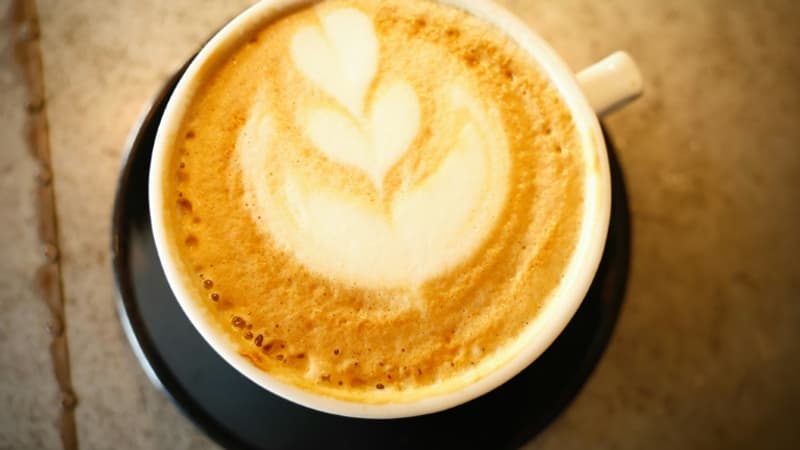With its orderly, Japanese, retro or minimalist decoration, and its high -level menu where “coffee with milk” is the king, “coffee shops” bloom everywhere in France, to the point of shading traditional coffees.
A “cafeteria” opens every week in France, according to Collective Café, French Specialized Coffee Federation, the country with more than 3,500 points of sale for a turnover of 321 million euros.
The Xerfi firm evaluates the market at 750 million euros (including Starbucks) for more than 2,000 points of sale.
According to the Federation, since 2010, these brands, independent for 85%, have increased by 74%and sales have increased by 140%.
Black Storefront in a commercial street in the center of Paris, Café Madam has been alone in this niche, but “for two several years they have established” near, explains its founder, Jennifer Naklé, 35.
Offer depth
But “there is so much request that we do not feel a lack of activity,” she says.
“At the beginning, we made a 10% drink of drinks, today is 80% of the activity and billing has” doubled “in 13 years of existence.
Following the American giants Starbucks and McCafé, a McDonald’s brand, the French channel Columbus Café opens an average of 25 coffee shops every year, and will pass the 250 points of sale.
“When we see the crisis that the catering sector knows, we can say that the concept of cafeteria defends itself better,” said Frédéric Pastur, general director of France of Colombus Café.
“The French were used to consuming +cafeteria +, with consumption throughout the day, carrying in glasses, a straw … It is no longer only traditional coffee in the morning, but delicious, hot, cold, drinks with milk, with less and less coffee,” he explains to AFP.
These brands “play thoroughly in the depth of the offer”, with many letter drinks, far from the “little black in the counter”, abounds François Blouin, of the vision of the food service.
“The multiple between the cost and the sale price of coffee is quite high”, which makes them very profitable, provided it creates enough volume, he explains.
Oats and collagen
On a shelf of Mrs. Coffee, a series of color powders: pink for the “beet of coffee with pink milk”, black of “coal milk” (with an active carbon), yellow of “coffee with golden milk” in the turmeric and green of the “coffee with milk”, the essential tea dust of the coffee shops, which constitutes half of the ordered drinks, you lists the manager.
These products are more expensive than coffee: 30 cents for an espresso triggered “easily 90 cents for a dose of matcha,” explains Jennifer Naklé, who must transmit it in the sale price.
But customers, mainly young adults, “are ready to pay if the content continues,” he said, as the “flagship of the moment”, the “milk brightness”, based on coffee, oat milk and collagen (it is supposed to improve the elasticity of the skin) that charges 8 euros.
If the card is varied, it remains very standardized, dictated by the trends of social networks, to the point of increasing the fears of a shortage of Matcha, produced in Japan.
“I tried the new beverage that is fashionable” and “It was too good,” he tells his 1,800 subscribers on Instagram Elise, 23, a cup of “ube latte” in his hand (purple drink based on a Filippin tuber mixed with vanilla milk and vegetables).
Ultracompetitive environment
“With Matcha or UBE, there is one side of the experience, the moment will last a long time, not as an espresso,” he explains to AFP. He also appreciates “the aesthetics” of these drinks, see that “Barista has put in the heart.”
An aesthetic that makes more and more influential people, and especially influential, open their cafeteria: Rosa Bonheur in Lille, Natoo or Laura Hannoun in Paris.
“There is a wave at this time, we will make the accounts in a few months or a few years among those who have managed to understand this profession (…) and the ephemeral points of sale that will stop,” said François Blouin.
“In an ultra competitive environment where more than half of the companies are losing, a rationalization of the park seems inevitable in the medium term,” predicts the Xerfi company.
Source: BFM TV


